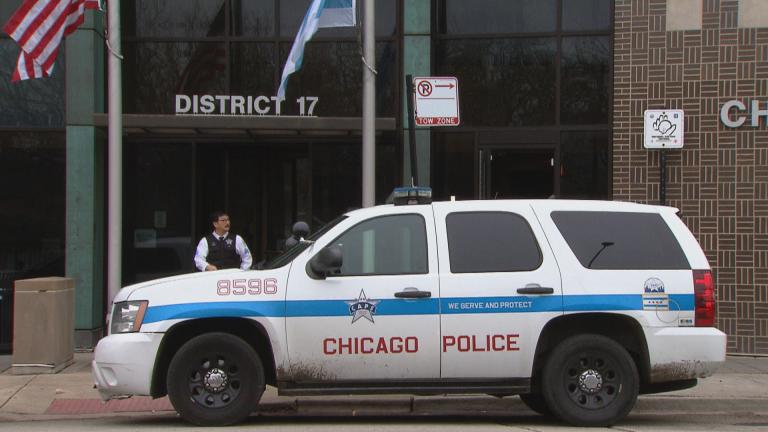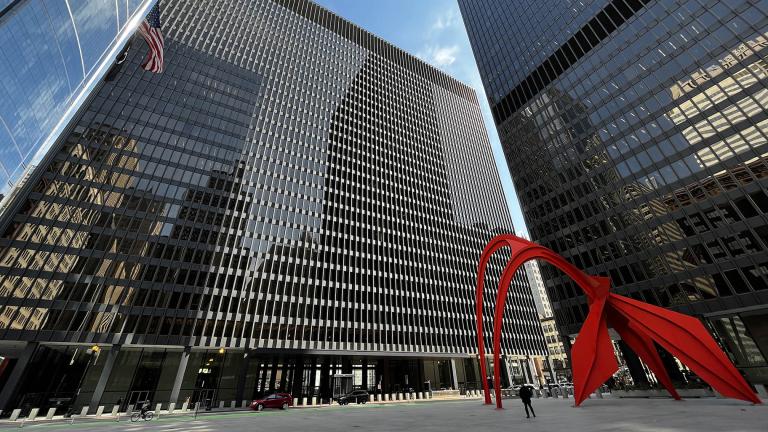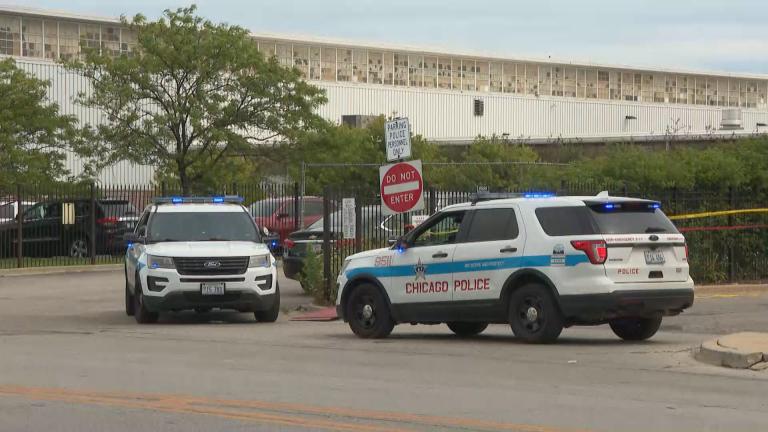In the span of a week, from Sept. 6-12, Chicago saw 77 shootings, according to data from the Chicago Police Department.
Mayor Lori Lightfoot says gun violence is making people fearful of gangs, which she says are terrorizing neighborhoods.
“Killing babies, killing children, killing old people indiscriminately. That is absolutely not acceptable. And we’ve got to put a marker down that we as a city are using every tool in our tool kit to push back against these violent gangs that are leaving a trail of blood and death and misery in their wake,” Lightfoot said Friday at an unrelated event.
She just introduced a plan to go after gang leaders in civil court in an attempt to go after their ill-begotten profits.
Her proposal is modeled after the Illinois Streetgang Terrorism Omnibus Prevention Act (740 ILCS 147), which has been used in the collar counties to go after gangs.
Both the state law and the proposed city ordinance begin by justifying the tactic by declaring it a right of every individual to be secure from fear and violence.
“I’m sure Chicago looked at this when the law was first passed and said, ‘Does it make sense?’ And arrived at the logical conclusion it would be a huge boondoggle, waste of money and pure political show,” said attorney John Mauck.
Mauck said with Lightfoot under pressure to do something about Chicago’s rise in crime, he suspects her staff desperately cast around to find a strategy that shows they’re doing something.
“It’s 98% political, 2% substance,” he said.
Mauck represented pro bono three former Latin King members, who he says had turned their lives around when a case out of Kane County went after them using the state’s gang law. It took seven years to dismiss the charges. Meanwhile, his clients had trouble getting jobs or a mortgage.
He said he reviewed a docket and in 100 instances found few or any that succeeded.
“Very difficult to recover assets from 20-year-old gangbangers. First you got to sue ‘em. Serve a summons on them. Then you’ve got to prove they’re actually in a gang. They’ll say, ‘No, I’m not in a gang,’” Mauck said. “It looked to me like the majority of them were just what we call in the law ‘default.’ Somebody was sued, they never appeared in court or they tore up the summons and they could care less, and they got a court order. And then the state said, ‘Look we got a court order.’ But it didn’t solve the problem. Didn’t stop crime, didn’t collect assets.”
Lightfoot said the move is just one tool in her arsenal, and that her administration will continue to focus on efforts like investing in communities.
That’s where the ACLU of Illinois said the mayor and City Council’s focus should remain.
“The law already provides broad authority to police to seize property from those suspected of criminal activity. We believe those processes already have been allowed to operate without due process,” Ed Yohnka of the ACLU said in a statement.
First and Fourth Amendment concerns are also among the critiques given by Lucy Parsons Lab Director Freddy Martinez.
Because these would be civil rather than criminal matters, alleged gang members wouldn’t get a public defender. There would also be a lower burden of proof: the preponderance of evidence versus guilt beyond a reasonable doubt.
“It’s a very low threshold and you have something like career prosecutors, who their entire job is to seize stuff, and you have them going up mostly poor brown people with often no legal representation who don’t know the system at all,” Martinez said.
Martinez poured over years of data on police use civil asset forfeiture, and says it creates a perverse incentive.
Police can seize people’s cars, video game stations and cash, and use the money to buy more surveillance equipment.
Chicago’s proposal specifies that at least half of all assets seized must go toward supporting victims and witnesses of street gang violence.
Martinez said the concept has other serious flaws, as shown in his research.
“What we’re seeing is that they were seizing something like $1,000, was the average seizure,” Martinez said. “So, we’re not talking about, they’re taking down like Pablo Escobar. We’re talking about just everyday people, people had had their rent money seized.”
Martinez worries that even more people will be swept up if Chicago enacts Lightfoot’s ordinance, introduced Monday afternoon as the “Victims’ Justice Ordinance,” given the CPD’s use of a flawed gang database, which has been found by the inspector general to be rife with errors.
The mayor said Friday that the police department will soon roll out a new version, with “heightened standards” and stricter criteria, but that the city needs a roadmap of understanding who is a dangerous gang member.
Mauck, meanwhile, said he supports holding criminals accountable, but not via the “scattershot” method of going after their assets.
If Chicago does pursue using this method to fight crime, he said it should be the Cook County State’s Attorney, not Chicago’s corporate counsel, who he said should be focused on city hall business.
Asked about whether this was trying to go around Cook County State’s Attorney Kim Foxx, the mayor on Friday said no, pointing to Chicago’s home rule authority.
“We have a responsibility to take care of the business that’s happening in our streets, in our cities on behalf of the residents. We can’t wait for anybody else. Lots of people have different tools that they could use and you’ll have to ask them why or why not they’re using them,” Lightfoot said. “But what I know is that we have an opportunity to bring these violent street gangs into civil court, out of the shadows, expose them for what they are, and if we’re successful – and I think we will be – take their assets and the profit motive for killing our babies.”
In a statement on Monday afternoon, Foxx’s office press office did not directly address the state’s attorney’s position on the strategy.
“The Cook County State Attorney’s Office is always willing to work with our partners to address violence and crime and will continue to prosecute criminal cases based on the law and the evidence,” said Cristina Villarreal, Foxx communications chief, in a statement. “We do not yet have the details on the Mayor’s ordinance allowing for gang asset forfeiture, but we are open to collaborating with law enforcement and city leaders as we look to increase safety in our communities.”
Follow Amanda Vinicky on Twitter: @AmandaVinicky





